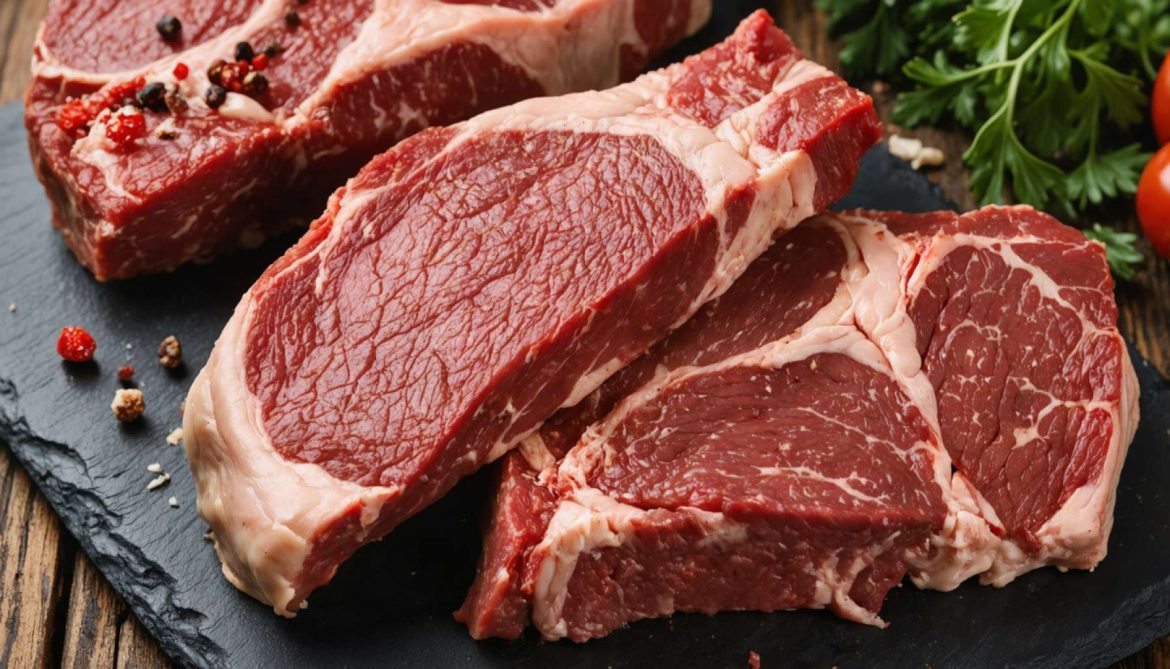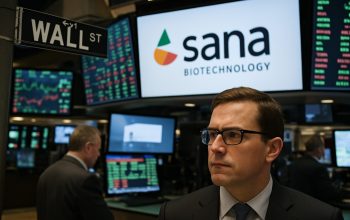- Engineers in Germany have spearheaded a major innovation in cultivated meat production, promising tastier, ethical, and sustainable food options.
- The Cultivated B has registered a hybrid cell-based sausage with European food authorities, highlighting advancements in bioengineering.
- The company shifted operations to Canada, capitalizing on the country’s advanced bioeconomic infrastructure and AI-driven biosensors.
- A key breakthrough is the replacement of fetal bovine serum with TCB-32, a synthetic molecule, overcoming ethical and cost challenges in meat cultivation.
- This innovation challenges traditional agricultural practices and aligns with modern ethical perspectives, potentially reducing the carbon footprint.
- The Cultivated B’s efforts emphasize the future of food, where technology and ethics collaboratively redefine consumption and environmental impact.
In a transformative leap for the food industry, engineers in Germany have ushered in a new era for cultivated meat production. Their flagship innovation promises not only tastier dishes but more ethical and sustainable practices. Imagine biting into a juicy sausage, knowing it’s the product of cutting-edge bioengineering rather than traditional livestock farming.
This savory saga unfolds with The Cultivated B, a bold subsidiary of InFamily Foods, which made waves with an unprecedented move to register a hybrid cell-based sausage with Europe’s stringent food safety authorities. Facing lengthy approval delays in the EU, the company turned its gaze across the Atlantic, establishing a bioengineering hub in Canada. This strategic pivot leverages Canada’s superior bioeconomic infrastructure to unleash a benchtop cultivation station brimming with AI-driven biosensors.
The crown jewel of this breakthrough, however, is the elimination of fetal bovine serum, a costly and ethically fraught ingredient historically essential for cultivating meat cells. By replacing it with a synthetic molecule, TCB-32, The Cultivated B has overcome a formidable hurdle, achieving a robust 70% of the growth rate typical of traditional methods without the variability or ethical concerns.
This advancement not only redefines the landscape for cell-based proteins but also challenges entrenched agricultural policies across Europe. While some governments grapple with constitutional protections for traditional farming, this discovery aligns cultivated meat with the ethical perspectives resonating with a modern audience, poised to remodel our dinner tables and reduce agriculture’s carbon footprint.
As the savory aroma of change wafts through the culinary world, The Cultivated B’s innovation casts a spotlight on the future—a future where technology and ethics intertwine to redefine what we consume and how we impact the planet. 🌍🥩
This Cultivated Sausage Game-Changer Could Change the Way We Eat
How-To Steps & Life Hacks
If you’re curious about how cultivated meat is produced, here’s a simplified overview:
1. Cell Extraction: Start by obtaining animal cells, usually from a small biopsy of a living animal.
2. Cultivation: These cells are placed in a controlled environment with nutrients to promote growth.
3. Growth and Differentiation: Using growth factors, the cells multiply and form the specific tissues, like muscle and fat, needed for meat.
4. Harvesting: Once the desired amount and composition are achieved, the cells are harvested.
5. Processing: The cell mass can be processed into various forms, like sausages or burgers, using standard food processing techniques.
Life Hack: For delicious results at home, combine cultivated meat products with traditional spices and cooking techniques to enhance flavor.
Real-World Use Cases
Cultivated meat offers solutions across various sectors:
– Environment: Reduces the carbon footprint of meat production by an estimated 90% compared to conventional farming.
– Ethics: Provides a cruelty-free meat option, attracting animal welfare advocates.
– Food Security: Can be produced in urban environments, reducing dependency on land and resources.
Market Forecasts & Industry Trends
The cultivated meat industry is rapidly evolving:
– Market Growth: Predictions indicate the global market could reach up to $25 billion by 2030 (Source: McKinsey & Company).
– Consumer Trends: Increasing demand for sustainable and ethical food options is driving growth.
Reviews & Comparisons
Experts and consumers have started to weigh in:
– Taste and Texture: Reports indicate that cultivated meat closely resembles traditional meat but highlights of product comparisons are still in the early stages.
– Price: Currently higher due to production costs, but expected to decrease as technology scales.
Controversies & Limitations
It’s not all smooth sailing:
– Regulatory Hurdles: Cultivated meat faces stringent regulatory challenges, particularly in the EU.
– Public Acceptance: Some consumers remain skeptical about lab-grown meat.
Features, Specs & Pricing
Key highlights of The Cultivated B’s cell-based sausage:
– Feature: Uses TCB-32 to replace fetal bovine serum.
– Pricing: Initially high but projected to become competitive with advancement.
Security & Sustainability
Security and sustainability promises:
– Security: AI-driven biosensors ensure the cultivation process is closely monitored for safety.
– Sustainability: The elimination of livestock farming reduces land and water use significantly.
Pros & Cons Overview
Pros:
– Reduced environmental impact
– Ethical meat production
– Potential for scalable urban production
Cons:
– High production costs
– Regulatory and consumer acceptance challenges
Insights & Predictions
Industry insiders believe that cultivated meat could dominate the protein market within the next few decades, driven by environmental concerns and technological advancements.
Tutorials & Compatibility
Tech enthusiasts can expect future integrations of AI and biosensors in bioreactor technology to automate and optimize processes.
Actionable Recommendations
– For Consumers: Stay informed about the environmental and ethical impacts of your food choices.
– For Investors: Consider stakes in companies advancing biotechnology in agriculture like The Cultivated B.
For more information, visit Infarm or follow industry news updates.
By embracing these innovations, we could redefine our diets and impact on the planet, making the future of food production more sustainable and ethical. 🌱🍽️



